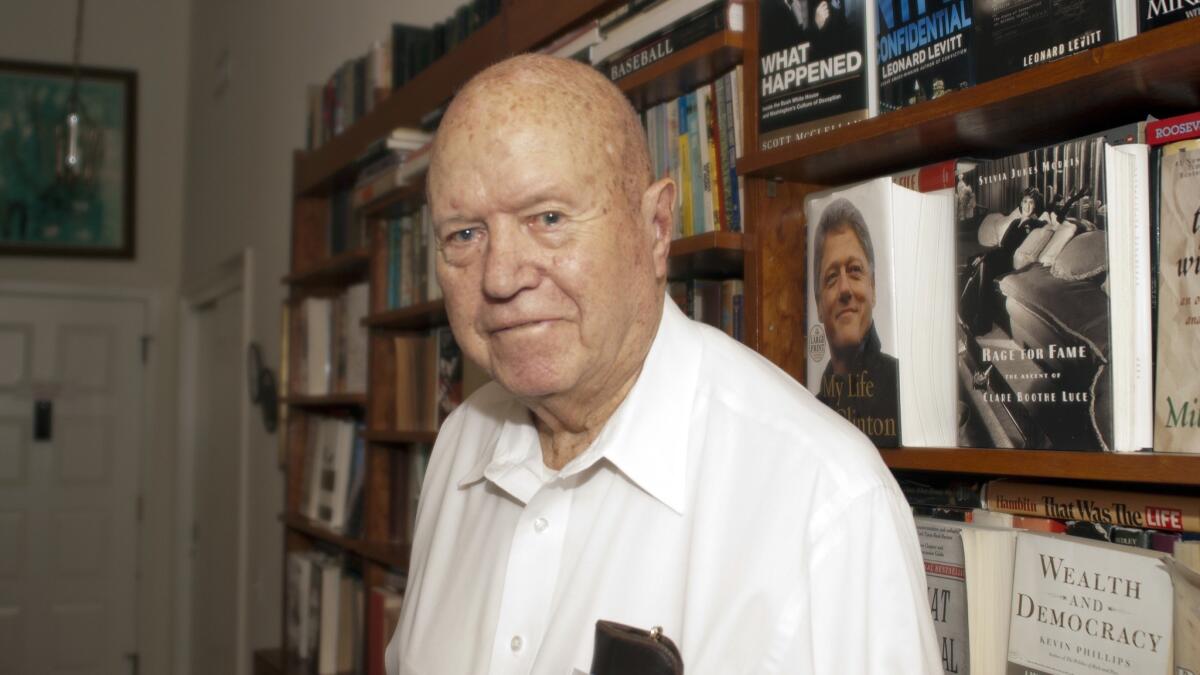Frank McCulloch, veteran journalist and former managing editor of The Times, dies at 98

Frank McCulloch, who covered the Vietnam War from the front lines and later worked as editor for newspapers across the U.S., including as a onetime managing editor of the Los Angeles Times, died this week. He was 98.
McCulloch died Monday at a Santa Rosa, Calif., nursing facility where he’d been treated for a brief illness, said Warren Lerude, a longtime friend and colleague.
The son of a rural Nevada rancher, McCulloch got his start in journalism at the Sagebrush, the student newspaper of the University of Nevada, Reno.
He covered crime, sports and politics for the Reno Evening Gazette starting in the late 1940s and later served as Saigon bureau chief for the Time-Life News Service during the Vietnam War.
President Lyndon B. Johnson was enraged by McCulloch’s reporting in 1966 that the administration was planning to increase U.S. forces in Southeast Asia to 545,000, Lerude said.
The late journalist and historian David Halberstam once recalled the time a reporter in Washington raised the topic of troop escalation with Johnson, “who famously answered that Time’s bald-headed Saigon bureau chief had been wandering around in the sun without a hat and was addled.” The reporting eventually proved correct.
“I wasn’t any genius,” McCulloch later told the University of Nevada alumni magazine. “I just had the sources.”
McCulloch wrote several Time magazine cover stories, including a 1955 piece on Supreme Court Justice Thurgood Marshall.
Lerude said McCulloch was the last reporter to interview Howard Hughes when, in 1958, the reclusive billionaire took him on a flight in one of his new planes.
McCulloch went on to top positions at papers including the Los Angeles Times. There, in 1961, he helped oversee an investigation into the John Birch Society, an early project championed by publisher Otis Chandler.
The stories described the Birchers’ extremist tactics and positions and depicted them as a threat to the American way of life. The series was notable because some members of Chandler’s family belonged to the society. Many considered the series a turning point in Chandler’s transformation of The Times into a top journalistic institution.
Columbia University’s Graduate School of Journalism presented McCulloch its highest award in 1984 “for singular journalistic performance in the public interest” and “overarching accomplishment and distinguished service to journalism.”
He is survived by two daughters and several grandchildren and great-grandchildren.
More to Read
Start your day right
Sign up for Essential California for the L.A. Times biggest news, features and recommendations in your inbox six days a week.
You may occasionally receive promotional content from the Los Angeles Times.






